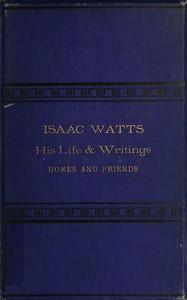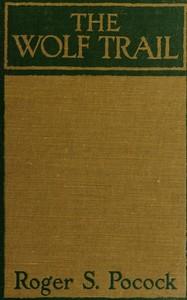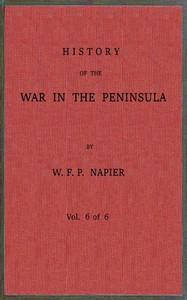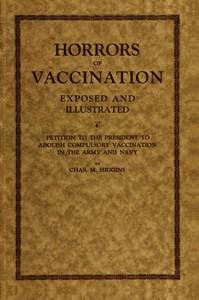|
|
Read this ebook for free! No credit card needed, absolutely nothing to pay.Words: 20990 in 9 pages
This is an ebook sharing website. You can read the uploaded ebooks for free here. No credit cards needed, nothing to pay. If you want to own a digital copy of the ebook, or want to read offline with your favorite ebook-reader, then you can choose to buy and download the ebook.

: Isaac Watts; his life and writings his homes and friends by Hood Edwin Paxton - Watts Isaac 1674-1748@FreeBooksThu 08 Jun, 2023 denominate practical Christianity--the activities created by Methodism were quite unknown. All over the country were Nonconformist churches , where some learned, scholarly, and philosophical minister was at the head of a class of thoughtful minds. Numbers of them seemed to have little to do but to think; the heart did not minister much to the head in many instances. The Unitarianism of our day was unknown. It thus represented very much the high Arian sentiment of reverence to Christ without the acknowledgment of His Godhead. The hymns of Watts abound in expressions of praise to Christ and to the Holy Spirit. He was called upon to vindicate that which he himself had done; he was called upon to defend that whole scheme of doctrine which accepted the Three Persons in the Divine Godhead. Perhaps the defect in all such efforts is, that the very attempt to embody some doctrines within the forms of the understanding naturally and essentially depraves them. If we say, as we often do, a God understood is no God at all--and this remark applies to mere natural religion--the same holds true of those higher doctrines of revelation which are the adumbrations of "the light which no man hath seen or can see." There are doctrines in Theology, even as there are doctrines in Science, the demonstration of which is rather negative than positive. Chemists tell us of an element essential to our life--we breathe it every moment; it contributes to the balance of all the powers of the atmosphere; it tames the subtle, fiery-tempered oxygen, the wild and vehement hydrogen; it represses, allays, and composes, but itself has no colour no odour; it has no active properties, no chemical affections; it is one of the greatest mysteries in nature. It is invisible, and yet it proclaims its presence; the chemist cannot touch it, but he is sure of its existence. It may well fill our minds with awe that we are ever in the presence of such an agent, that before it the lamp of science is darkened, like a man with a dim light in a room in which he sees phantoms he cannot touch, and hears voices the causes of which he cannot detect, and as he holds up his lamp he is aware of a presence that disturbs him, that will not enter into his knowledge, and for which he cannot account. Only he knows that it is. Such is nitrogen. It is thus we apprehend the doctrine of the Trinity. The claim which the Unitarians put forth to find in Watts one of themselves is not less than audacious and dishonest. It is, however, founded--very ridiculously, we venture to think--upon some expressions reported after his death, which implied that he would have been willing, had he been able, to have altered some expressions in his hymns. Truly it is amazing that the author could survive the publication of his first volume forty years, and not alter many barbarisms of metre and expression. It may, perhaps, be partly accounted for from the fact that the copyright of the hymns had passed at once from his hands. We can very well believe there were certain expressions in his hymns he would have been not indisposed to alter, without touching at all upon matters of doctrine. It will be time enough for Unitarians to claim Watts when they are able to set aside his last published words, and to reconcile them with that faith which they call theirs, or to account, upon such principles as they would make him hold, for the sentiments which fell from his lips when dying. But as a study of Watts' mind, these pieces of his are like all that emanated from his pen, characterized by exceeding reverence for the subject he attempted to elucidate, and by charity, respect, and courtesy towards his opponents. Johnson says: "I am only enough acquainted with his theological works to admire his meekness of opposition, and his mildness of censure. It was not only in his books, but in his mind, that orthodoxy was united with charity." Some will, perhaps, almost think that this width of charity in Watts degenerated into a vice; we hope this book has made it evident that he both had strong convictions and knew how to act upon them steadily. But his heart was very inclusive in its love. It was not merely that he lived within the shadows of persecution, and belonged to an order whose opinions were only tolerated; he represented the mildest type of Nonconformity. Perhaps we shall surprise some readers not very well acquainted with his writings, by informing them that one of the latest efforts of his mind and pen was upon the inquiry, "Whether an Establishment is altogether an Impossibility." This was in his Essay, published in the year 1739, on "Civil Power in Things Sacred." It is a singular scheme, and the question is discussed with great moderation and candour; but it is rather a plea for a system of national education than the establishment of a national religion. He inquires, indeed, whether there might not be established a religion consistent with the just liberties of mankind, and practicable with every form of civil government. He thinks that officers should be appointed by the State to explain and enforce the great duties and sanctions of morality, and that the citizens should be compelled to receive such lessons as are unquestionably at the foundation of a national well-being, the welfare, strength, and support of the State, and that such teachers, as public benefactors, should be sustained at the charge of the State. The secret learned To mix his blood with sunshine, and to take The wind into his pulses. Johnson quotes a passage from Mr. Dyer, charging Watts with confounding the idea of space with empty space, and that he did not consider that though space might be without matter, yet matter, being extended, could not be without space. But in reply to this, it may be remarked that this is the whole question, and extended matter falls rather beneath the denomination of substance. It appears certainly the case that Watts, in his discussion, deals with infinite space, or say, certainly, indefinite space--that is, extension abstracted from phenomena. Such space Sir Isaac Newton reverently regarded as the sensorium of God. Newton was so essentially reverent even in thought that it was not possible for him to indulge an idea which was capable of depraving religious conceptions; but all minds, even religious minds, have not been equally reverent. Hence some have gone on to regard space as the immensity of God, as a property of God. But it would follow from this that as space is extended, so God, too, must be extended; and whatever tends to conform God with nature, or to place Him in contact with it, in any other way than as in relation to His wisdom and His will, is essentially unscriptural, and it is a dangerous proclivity below which yawn the fearful gulfs of Pantheism and Atheism. In these discussions our writer anticipated many of those shadows which in the course of a few years were to project themselves over the whole domain of philosophy and theology; and, indeed, only a few years before, in the great work of Spinosa, ominous indications had been given; and the second part of the "Living Temple" of John Howe bore immediately upon the coming questions. Watts' essay penetrates into the stronghold of Pantheism. Newton and Pascal, both looking up into the infinite spaces, felt their nature called on to reply to the questions suggested. The silence terrified Pascal; Newton's calmer nature gathered up even infinite space into the great idea, that it was but a mode, or attribute, of God. Some such doctrines govern the Essays of Watts: Space, he argues, cannot be God; we cannot indeed conceive that infinite space ever began to be, we have an idea of it as eternal and unchangeable; according to Watts it seems to contain what existence it has in the very idea, nature, or essence of it, which is one attribute of God, and whereby we prove His existence. It appears to be a necessary being and has a sort of self-existence, for we cannot tell how to conceive it not to he. It seems to be an impassible, indivisible, immutable essence, and therefore according to the ghastly pantheistic philosophy it is argued that space is God. This idea Watts concisely set aside, because it involves the absurdity of making the blessed God a Being of infinite length, breadth, and depth, and ascribing to Him parts of this nature measurable by inches, yards, and miles. Perhaps this is not so clear to all readers as it was to the writer himself; but the close seems more satisfactory when he says, "Strongest arguments seem to evince this, that it must be God, or it must be nothing." Watts, then, was an Idealist, and the remark of Johnson arises from a misapprehension of the drift of the essay. He argues that space is only the shadow cast by substance--we are sure that shadow or darkness is a mere nothing, and space is nothing but the absence of body, as shade is the absence of light, and both are explicable without supposing either to be real beings: it is therefore merely an abstract idea, or, as we should say, a "thought-form;" it will follow from this that such an idea of space dissolves one of the charming illusions of Pantheism, and that there rises from the midst of this universe of unidentical being the personality of man. That about the philosophic essays which interests us is their freshness, and the clear, easily lucid, and charmingly illustrated style in which the doctrines are conveyed. They assuredly are a very happy commentary upon Locke, from whom he often separates, as in the essay on "Innate Ideas;" he agrees with Locke in the main, and then proceeds to discourse upon many simple ideas which are innate in some sense. His essay to prove that the "Soul never Sleeps," and "On the Place and Motion of Spirits, and the Power of a Spirit to move Matter," are interesting; that on the "Departing and Separate Soul" is a sublime piece of writing, and on the "Resurrection of the same Body," and on the "Production and Nourishment of Plants and Animals." Few persons now, it may be supposed, even know of the existence of these essays; they seem to us pieces of truly delightful reading, most instructive, suggestive, and entertaining, singularly free from hard and unpleasant lines of dogmatism, full of delightful and suggestive pictures; take the following: SUNBEAMS AND STARBEAMS. "What a surprising work of God is vision, that notwithstanding all these infinite meetings and crossings of starbeams and sunbeams night and day, through all our solar world, there should be such a regular conveyance of light to every eye as to discern each star so distinctly by night, as well as all other objects on earth by day! And this difficulty and wonder will be greatly increased by considering the innumerable double, triple, and tenfold reflections and refractions of sunbeams, or daylight, near our earth, and among the various bodies on the surface of it. Let ten thousand men stand round a large elevated amphitheatre; in the middle of it, on a black plain, let ten thousand white round plates be placed, of two inches diameter, and at two inches distance; every eye must receive many rays of light reflected from every plate, in order to perceive its shape and colour; now, if there were but one ray of light came from each plate, here would be ten thousand rays falling on every single eye, which would make twenty thousand times ten thousand, that is, two hundred millions of rays crossing each other in direct lines in order to make every plate visible to every man. But if we suppose that each plate reflected one hundred rays, which is no unreasonable supposition, this would rise to twenty thousand millions. What an amazing thing is the distinct vision of the shape and colour of each plate by every eye, notwithstanding these confused crossings and rays! What an astonishing composition is the eye in all the coats and all the humours of it, to convey those ten thousand white images, or those millions of rays so distinct to the retina, and to impress and paint them all there! And what further amazement attends us if we follow the image on the retina, conveying itself by the optic nerves into the common sensory without confusion? Can a rational being survey this scene and say there is no God? Can a mind think on this stupendous bodily organ, the eye, and not adore the Wisdom that contrived it?" And the following is not only most interesting, but anticipates, with much strength, a line of argument important to the sceptical philosophy of our own day. The German Buchner binds up his atheistic philosophy between the two covers of Force and Matter; and many in our own country follow in the same train of singularly forgetful thought: forgetful because force and matter are really not sufficient to constitute a universe; the regulative and directive power which controls force and manipulates matter to its will is assuredly as essential a factor as either force or matter. Thus Dr. Watts argues in his remarks: THE DIRECTION OF MOTION A PROOF OF DEITY. "Yet, after all, I know it may be replied again, that gravitation is a power which is not limited in its agency by any conceivable distances whatsoever; and therefore, when these starbeams are run out never so far into the infinite void by the force of their emission from the star, yet their gravitation towards the star, or some of the planetary worlds, which sometimes, perhaps, may be nearer to it, has perpetual influence to retard their motion by degrees, even as the motion of a comet is retarded by its gravitation towards the sun, though it flies to such a prodigious distance from the sun, and in time it is stopped and drawn back again and made to return towards its centre. And just so, may we suppose, all the sunbeams and starbeams that ever were emitted, even to the borders of the creation, to have been restrained by degrees by this principle of gravitation till, moving slower and slower, at last they are stopped in their progress and made to return toward their own or some other planetary system. And if so, then there is a perpetual return of the beams of light towards some or other of their bright originals, an everlasting circulation of these lucid atoms, which will hinder this eternal dilation of the bounds of the universe, and at the same time will equally prevent the wasting of the substance of the lucid bodies, the sun or stars. Well, but if this power of restraining and reducing the flight of starbeams be ascribed to this principle of gravitation, let us inquire what is this gravitation, which prevents the universe from such a perpetual waste of light? It cannot be supposed to be any real property or natural power inhering in matter or body, which exerts its influence at so prodigious a distance. I think, therefore, it is generally agreed, and with great reason, that it is properly the influence of a Divine power upon every atom of matter which, in a most exact proportion to its bulk and distance, causes it to gravitate towards all other material beings, and which makes all the bulky beings in the universe, viz., the sun, planets, and stars, attract the bodies that are near them towards themselves. Now this law of nature being settled at first by God the Creator, and being constantly maintained in the course of His providence, it is esteemed as an effect of nature, and has a property of matter, though in truth it is owing to the almighty and all-pervading power of God exerting its incessant dominion and influence through the whole material creation, producing an infinite variety of changes which Ave observe among bodies, confining the universe to its appointed limits, restraining the swift motion of the beams of light, and preserving this vast system of beings from waste and ruin, from desolation and darkness. If there be a world, there is a God; if there be a sun and stars, every ray points to their Creator; not a beam of light from all the lucid globes, but acknowledges its mission from the wisdom and will of God, and feels the restraint of His laws, that it may not be an eternal wanderer. But I call my thoughts to retire from these extravagant rovings beyond the limits of creation. What do these amusements teach us but the inconceivable grandeur, extent, and magnificence of the works and the power of God, the astonishing contrivances of His wisdom, and the poverty, the weakness, and narrowness of our own understandings, all which are lessons well becoming a creature?" CREATION OR CONSERVATION. Free books android app tbrJar TBR JAR Read Free books online gutenberg More posts by @FreeBooks
: The flowering plants of South Africa; vol. 4 by Pole Evans I B Illtyd Buller - Plants South Africa Periodicals; Plants South Africa Pictorial works Periodicals@FreeBooksThu 08 Jun, 2023
|
Terms of Use Stock Market News! © gutenberg.org.in2025 All Rights reserved.






